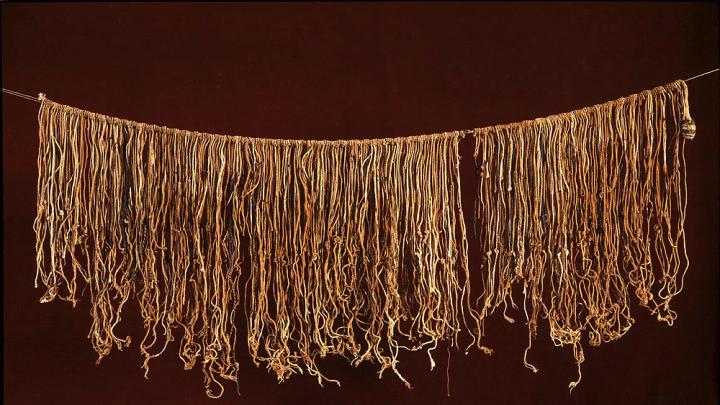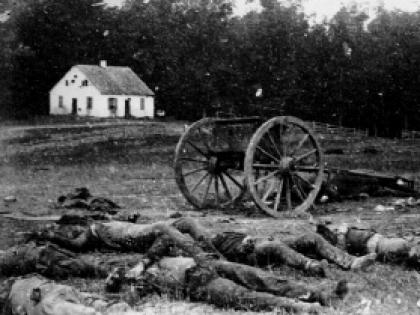What is a quipu? A pre-Columbian device composed of delicately knotted cords used to keep records and transmit messages. There are only about 1,000 quipu (derived from the Quechua word for “knot”) left in the world; the majority have been traced to the Inca period, ca. 1400-1532 c.e. Formed like a necklace, quipu encompass a primary cord from which hang cords of different lengths and colors and varying numbers of knots. They both convey information and are beautiful to the modern eye. The multimedia exhibit “Cecilia Vicuña: Disappeared Quipu,” at the Museum of Fine Arts through January 21, features five of these artifacts that are on loan from Harvard’s Peabody Museum of Archaeology and Ethnology (above, an example from Peru’s Nazca Province), along with Andean textiles from the MFA’s collection. (Quipu researcher Gary Urton, Dumbarton Oaks professor of pre-Columbian studies in Harvard’s anthropology department, also collaborated on the exhibit.)
All these artifacts surround a central, giant quipu-like contemporary sculpture composed of tree-trunk-sized wool cords strung from the ceiling, onto which abstract video projections allude to lost languages, voices, and ghostly memories. Vicuña is a New York-based Chilean artist and poet who has spent years studying and interpreting quipu; she is intent on excavating their value as evidence of a sophisticated culture destroyed by Spanish colonization of South America, and of a universal human need for communication and connectivity.








